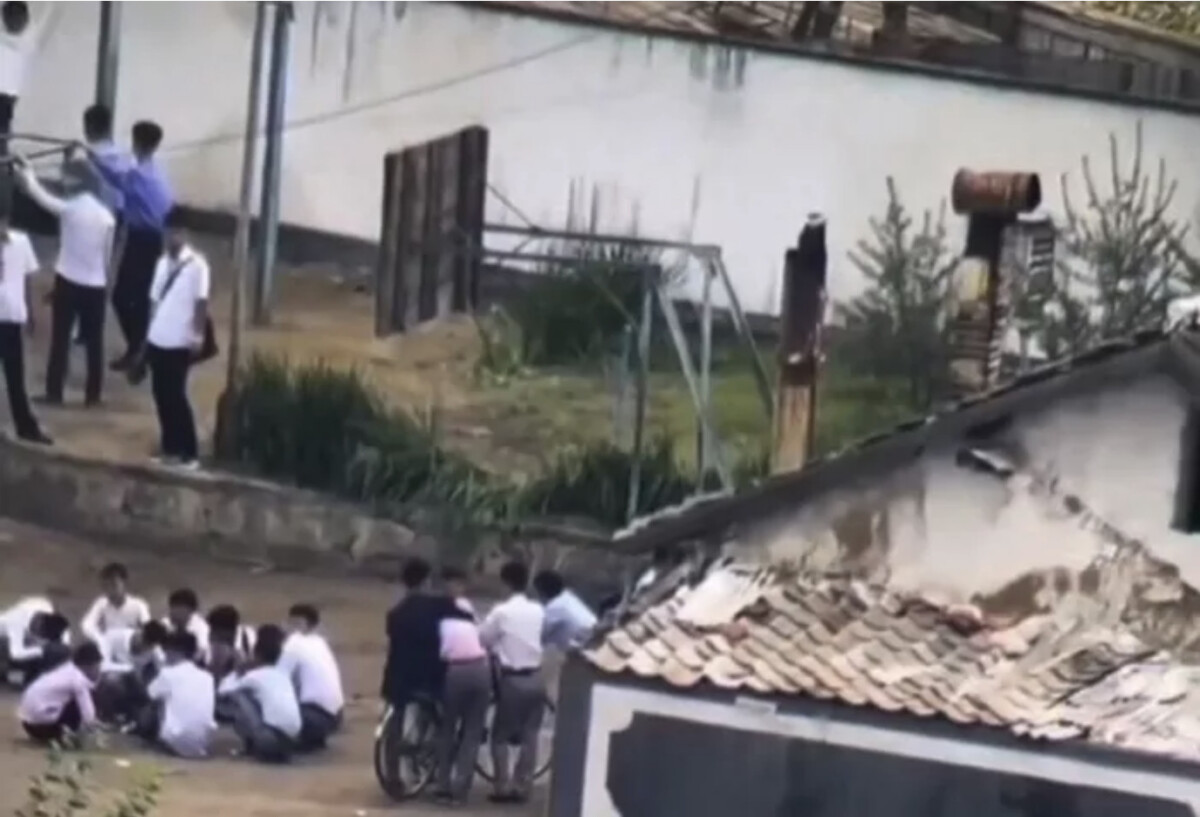Students forcibly mobilized for corn harvest after school

With North Korea facing more chronic food shortages, the regime is doing what it does best and looking to boost productivity by enlisting students for farm work.
Elementary, middle, and high school students in Hoeryong City have recently been mobilized for corn harvesting after school, according to a source in North Hamgyong Province reached by phone on October 29.
This is no voluntary character-building exercise. The city’s education department has directed that all students, except those who are ill or assigned to school cleaning duties, are required to participate.
The work takes place at local farms and generally lasts for three or four hours.
To ensure the work is taken seriously, the Hoeryong officials require confirmation from each school regarding results. In response to this, teachers are allegedly making students collect at least 2 kilograms of corn each before letting them go home.
“The mobilization order came from the central government and was issued to each provincial, city, and county education department. They then pass it down to the schools,” the source said. “Because this is subject to evaluation, teachers feel compelled to make unreasonable demands of their students.”
At Nammun High School in Hoeryong City, students were sent to a local farm on October 25 and told that those who collected 2 kilograms of corn first would be allowed to go home immediately. This led some students to pick corn from unharvested fields, drawing reprimands from guards, while others reportedly resorted to thieving husks already collected by other students.
“Teachers assign tasks to students and allow them to go home in the order they complete them. This has made students desperate to find husks as quickly as possible,” the source said.
“Once autumn begins, this happens two or three times, and students are mobilized each time. But where is there any corn left to collect? Despite this, teachers continue to make unreasonable demands in hopes of themselves receiving favorable evaluations,” he said.
“To increase efficiency, teachers often assign tasks that foster competition among students. This competition leads to conflicts and negatively impacts the fundamental goals of education which should be learning and growth,” he said.
- Pressure on all citizens to supply fertilizer creates a clandestine trade - January 9, 2026
- New system for distribution grain to farmers based on performance, Not everyone is happy - December 13, 2025
- Party to hold annual review meetings early this year… Members fear public criticism - December 4, 2025

